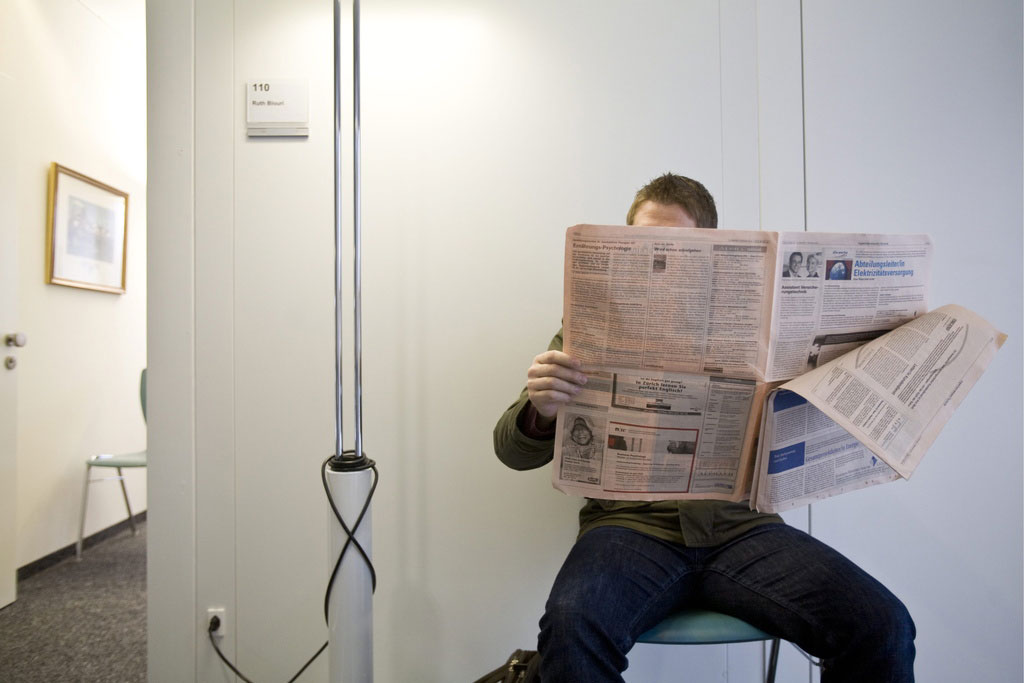Polls close in vote on jobless benefits

The Swiss have voted on a reform of Switzerland’s unemployment insurance which would cut benefits and shore up the debt-ridden social security scheme.
Sunday’s ballot followed opposition to the government’s plans by trade unions and centre-left political parties. Turnout was expected to be below average.
The reform hopes to raise additional revenue of SFr646 million ($659 million) for the insurance scheme through an increase in salary deductions.
The unions and the left oppose planned restrictions on eligibility to benefits, particularly for the young jobless.
The government and a majority of parliament argue the proposed reform is balanced and justified by the need to secure the future of the scheme.
The government has also said the reform will do away with measures which discourage the unemployed from applying for jobs and pledged to implement it in a fair manner.
Above average
The State Secretariat for Economic Affairs claims that unemployment benefits in Switzerland are above average compared with other European countries.
The insurance scheme’s SFr7 billion in debts is blamed on a higher than expected unemployment rate over the past few years.
The insurance system was devised for a jobless rate of 2.5 per cent, but the average has stood at 3.3 per cent in recent years. It is currently at 3.6 per cent, according to the government.
Contributing to the insurance scheme has been mandatory for all employees for more than 30 years.
Challenge
The unions, backed by the centre-left Social Democrats and the Greens, criticised the reform as an attack on the weakest members of society, including the young jobless, those aged over 55 and employees with health problems.
Opponents called for top earners to be forced to pay higher contributions to the scheme. They accused the government of using misleading information to win support for the reform.
The left has put social justice high on its political agenda. In a referendum last March they successfully challenged planned cuts in occupational benefits.
Another ballot on social security is scheduled for November, when voters will have the final say on an initiative to abolish tax breaks for the wealthy.
Fierce opposition is also expected to plans aimed at amending the state-run old age pension system, including raising the retirement age of women to 65. Parliament is due to decide next week.

More
Referendum
Campaign
The campaign ahead of Sunday’s vote was described as lacklustre despite the investment of considerable financial and personal resources.
Political scientist Claude Longchamp said attention was more focused on last Wednesday’s cabinet elections.
Pointing to an opinion poll conducted across the country, Longchamp noted that the unions and their allies had not campaigned hard enough for support.
He expected a turnout of below 40 per cent in the vote – the fourth ballot on the issue since 1984.
The survey also found that about one in five respondents were still undecided three weeks ahead of the vote.
About five million Swiss, including registered expatriates, were eligible to vote.
As a rule ballots take place four times a year.
As part of continuing trials with electronic voting, a limited number of citizens in several cantons were allowed to cast votes via computer.
Ballots also took place in many cantons and at a local level on a broad range of issues.
Proposals to introduce the right to vote for foreigners were voted on in cantons Bern and Basel City.
In Nidwalden voters were deciding on nuclear energy, while Solothurn and Basel Country were the latest cantons to vote on a controversial plan to boost regional cooperation on schools.
Voters in the city of Bern had the final say on a notorious alternative culture centre which a rightwing committee wanted to close down.

In compliance with the JTI standards
More: SWI swissinfo.ch certified by the Journalism Trust Initiative















You can find an overview of ongoing debates with our journalists here . Please join us!
If you want to start a conversation about a topic raised in this article or want to report factual errors, email us at english@swissinfo.ch.